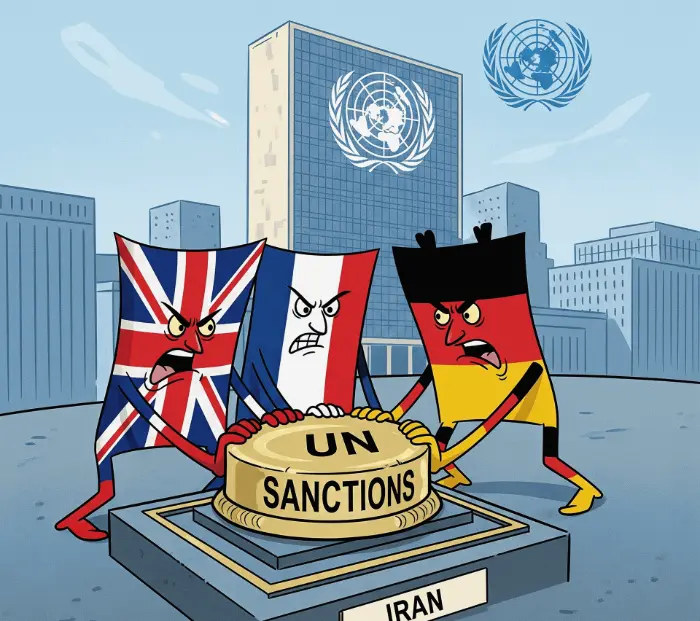UK, France & Germany Trigger Snapback to Restore UN Sanctions on Iran

London – The European powers UK, France, and Germany (E3) have launched the formal process to reinstate United Nations sanctions on Iran, escalating tensions over Tehran’s disputed nuclear programme.
The decision, announced in a letter to the UN Security Council, activates the snapback mechanism built into the 2015 Iran nuclear deal (JCPOA). This means sanctions relief granted a decade ago could expire within 30 days, unless the council votes otherwise.
Why the Move?
The E3 stated that Iran’s violations of the deal are “clear and deliberate,” pointing to its stockpile of highly enriched uranium, which they argue has “no civilian justification.” Western officials say Tehran’s activities now pose a serious threat to global peace and security.
British Foreign Secretary David Lammy revealed that Iran was offered an extension of sanctions relief if it complied with conditions — but he claimed Tehran made “no substantive effort” to do so.
Iran’s Response
Iran’s Foreign Ministry condemned the move as a “provocative escalation”, insisting its nuclear programme remains peaceful and civilian-focused. Tehran said it has shown “utmost restraint” and remains committed to diplomacy, but warned of “appropriate responses” if sanctions return.
US & Global Reaction
The United States welcomed the snapback process, pledging cooperation with its European allies. A spokesperson for US Secretary of State Marco Rubio said Washington remains open to direct talks with Tehran in pursuit of a “peaceful, lasting solution.”
Meanwhile, the International Atomic Energy Agency (IAEA) has continued raising concerns over restricted inspections and Iran’s growing nuclear capabilities.
What Happens Next?
The UN Security Council now has 30 days to decide whether sanctions relief continues or lapses. Unless consensus is reached, sanctions will automatically return, tightening restrictions on Iran’s economy and international dealings.
The latest move highlights the ongoing collapse of the 2015 nuclear deal, originally signed by Iran, the US, UK, France, Germany, China, and the EU. The accord unraveled after the US withdrew in 2018 under Donald Trump, reimposing sanctions and sparking renewed confrontation.